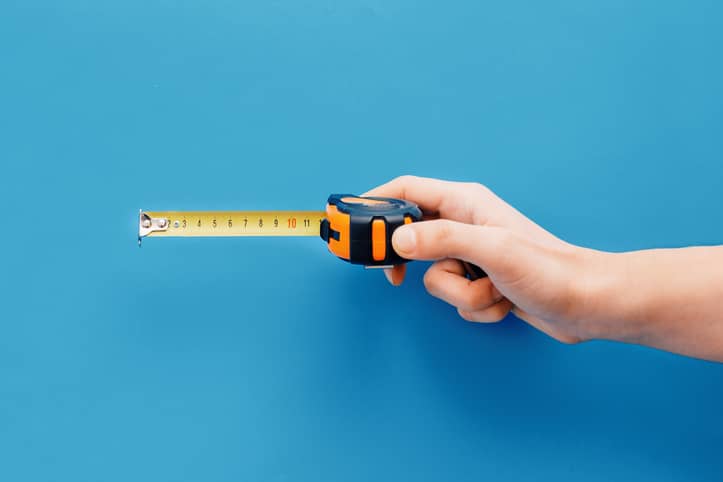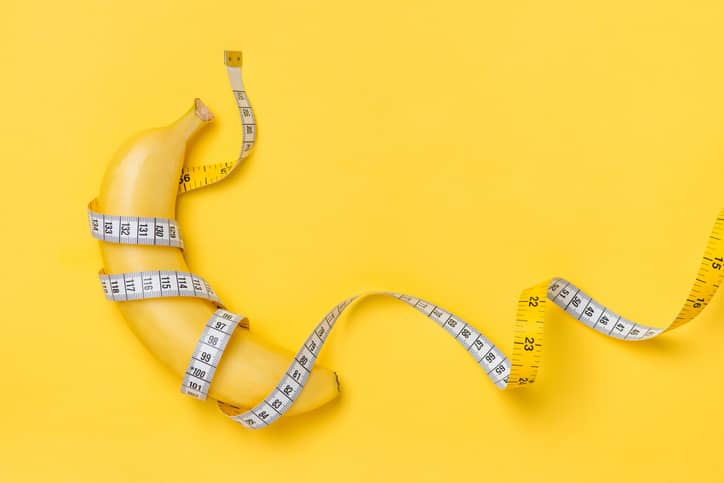What happens when a male is sexually excited?
Sexual excitement, or arousal, is when you feel physical, mental and emotional excitement when you have sexual contact with someone, see something that arouses you, or have sexual thoughts or desires.
Getting ‘turned on’, as it’s also called, triggers many physical changes that affect different body parts, including your brain, penis and testicles.
Read on to discover what really happens to your body when it’s sexually excited, including the many physical signs of male arousal and the 4 stages you’re likely to go through.
The main signs of male arousal
When you get sexually aroused, the changes that happen to your body are preparing you for the sexual pleasure of an orgasm – also known as climaxing – and ejaculation (or coming).
Signs of male arousal include:
- your penis getting erect
- the skin around the testicles (scrotum) getting tighter, moving your testicles closer to your body
- swelling of your testicles
- your heart rate getting faster
- your breathing getting quicker
- having an orgasm (when your pelvic muscles and those around the base of your penis tighten)
- ejaculating (when your penis releases semen, a mixture of sperm and body fluid)
The 4 stages of male arousal
To explain what happens when someone gets sexually excited, health professionals talk about ‘the sexual response cycle’.
The sexual response cycle has 4 stages. These are:
- excitement
- plateau
- orgasm
- resolution
Different signs of arousal happen in each stage.
Stage 1: Excitement
The first stage of the sexual response cycle is when you get sexually excited about something or someone. Your brain triggers a chemical process that leads to your penis getting erect, or hardening. This happens because blood flows into your penis, causing the tissue in it to expand and harden.
During this stage, the bag of skin that holds your testicles (scrotum) also gets tighter. Your heart rate picks up and your breathing gets faster too. Your nipples may harden and the muscles throughout your body start tightening. Your penis may even release some clear liquid (pre-ejaculate).
Stage 2: Plateau
In the second stage, all of the above changes become stronger. Your testicles grow bigger and are drawn closer to your body as the scrotum tightens even more.
Your heart rate and breathing get quicker, and your blood pressure rises.
Stage 3: Orgasm
The third stage is the climax stage, when you orgasm and ejaculate. It’s the shortest phase and usually lasts only a few seconds.
When you ejaculate, muscles in the base of your penis tighten and release (contract), and force semen (a mix of sperm and whitish liquid) out of your penis.
When you orgasm, you also feel a quick release of the muscle tension that built up in the earlier stages of the sexual response cycle.
Stage 4: Resolution
The fourth and final stage is the resolution phase.
Your penis gets smaller, going back to its usual size. Your scrotum, testicles, breathing, heart rate and blood pressure all go back to normal too. And you may feel tired.
You can’t orgasm again straight after ejaculation – you’ll need to wait a while to recover. How long you’ll need to wait varies from person to person, but in general, the older you get, the longer you need to wait.
But, when it comes to someone with a vagina, they can orgasm quite quickly after their first one and may be able to have multiple orgasms. Discover more about what happens when a female is sexually excited.
When to see a doctor
When you have trouble with sexual activity, it’s called sexual dysfunction. This includes problems such as:
- a low sex drive (libido)
- trouble getting or keeping an erection (erectile dysfunction or impotence)
- problems with ejaculation, like coming sooner than you want to (known as premature ejaculation), or being unable to come (retarded ejaculation)
- issues with having an orgasm
If you’re worried about coming too quickly when you have sex, you could try these exercises to help with premature ejaculation. You may also be wondering if changing your diet could help with it or if there are any natural remedies that could make a difference.
When it comes to your sex drive, or libido, keep in mind that it may be different from someone else’s – and what seems ‘normal’ to you may be unusual for someone else. Sometimes you may wonder if your sex drive is too high, or be worried when it seems too low, so you may want to know how to increase it. But it’s normal for your libido to be higher and lower at different times in your life.
It’s also not unusual to sometimes have erection problems or come too quickly, and it’s generally not something to worry about. But if these issues keep happening and it’s making you unhappy or causing you pain, it’s best to see a doctor.
Your questions answered
Why do balls tighten and loosen?
The balls (testicles) are held in a bag of skin, called the scrotum. The scrotum’s job is to protect the testicles. This includes making sure they don’t get too hot or too cold. The scrotum tightens when it’s cold – moving the testicles closer to the body to keep them warm. And it loosens when it’s hot – moving them away from the body to cool them down. Your testicles also change shape and move closer to the body because of sexual arousal.
Can sperm build-up cause pain?
No. You continually produce new sperm, and old sperm that isn't ejaculated is broken down naturally and absorbed by your body. So, there is no build-up of sperm if you don't ejaculate and it doesn't cause pain or any other problems. – Answered by Dr Rhianna McClymont, Lead Doctor at Livi. Click here to speak to a registered doctor by video, today (UK only).
Why do some guys get harder than others?
You may worry about how hard your penis gets, but keep in mind that most people occasionally have a problem getting a firm erection. To get an erection, you need enough blood to flow in and out of the penis. Nerves need to work properly, and you need to have enough testosterone and a high enough sex drive (libido). Issues with any of these things can cause problems with getting an erection. Certain medications, your stress levels, tiredness and other factors can also make it more difficult. Because problems getting and keeping an erection (erectile dysfunction) can be a sign of an underlying health condition, see a doctor if you keep having problems.
Key points
- many changes happen in your body when you get sexually excited
- signs of male arousal include an erection and the scrotum getting tighter
- different signs of arousal happen in each of the 4 stages of the sexual response cycle
- some sexual problems, like not keeping an erection or ejaculating too quickly, are common
- speak to a doctor if have any sexual problems that you’re worried about







